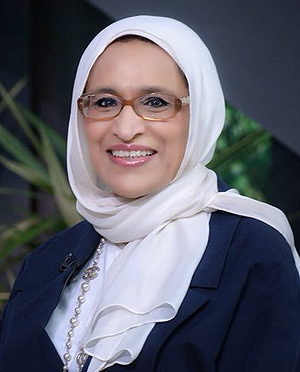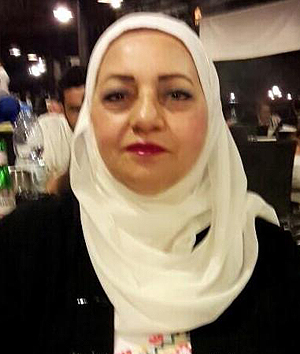Early one morning, a mother and her daughter went to a tailor to get a new dress stitched. The tailor, while taking the measurements of the child, groped the little girl when her mother was not looking, and kept praising her "cuteness" and how beautiful she was. After leaving the shop, the mother remembered she had forgotten something in the shop and sent her daughter to get it. The tailor downed the shutter, pulled the girl under the counter and forced her to touch him inappropriately.
She could not understand something was wrong, but felt something was not right either. She tried to escape and squeezed her little body from under the not-fully-closed shutter. Running to her mother, she innocently asked: "Mom, I touched the tailor. What was this about?" The mother screamed at her, blaming her for what she had done and threatened her not to tell her father.
The girl, now an adult, told Kuwait Times that she was sexually abused by the tailor when she was six years old. The incident she experienced as a child made her live in fear, and she couldn't enter into a loving relationship. The woman, who preferred to remain anonymous, also said that she was shocked by the reaction of her mother. "After avoiding many relationships, I'm married now with two beautiful daughters. I warn them about how some people may take advantage of their ignorance and abuse them," she added.
With childhood sexual abuse, victims are often too young to know how to express what is happening and seek help. When not properly treated, this can result in a lifetime of fear and anxiety. For the most part, boys and girls who are sexually abused respond in the same ways. They feel fear, confusion and sometimes anger. Both genders are at higher risk for mental health concerns including depression later in life and both may face stigma if they choose to report their abuse.

Dr Mona Al-Khawari, Director of the Child Protection Office at the Health Ministry, told Kuwait Times that the child protection office, which was affiliated with the ministry of health in 2017, has recorded 60 cases of sexual assault against children in Kuwait. She revealed there is a marked increase in the rate of reported cases of child abuse following the establishment of the office and due to an increase in the level of awareness among members of the community.
Khawari noted that some people are still ignorant about reporting sexual abuse of their child, and sometimes the community prefers to blame the victim. "This trauma may affect the personality of the child. The child will try to avoid the person they were abused by. Parents will notice that their child will avoid a particular person or the child will become introverted. A psychologist is trained to treat sexually abused children by making them speak about their experience - by talking, drawing or with a representation of the incident using toys," she said.
Khawari cautioned that if the child does not get treatment, it may affect them when they grow up. "They will try to avoid physical contact of any kind. They may refuse marriage or tend to overprotect themselves and their loved ones from a similar situation. But it is never too late to get the right treatment for a better life. Parents should not trust anyone with their child. Unfortunately, most sexual assaults against children aged 4 to 12 are by relatives," she told Kuwait Times.
"We shouldn't have such stigma around it - but it also shouldn't be happening. As long as people dismiss it, disbelieve it and deny it, it creates a space for this to keep happening," she pointed out, adding that anyone can call the child protection office and the authorities will deal with the situation immediately.
The Child Protection Office was established in 2014 by specialized medical and security teams in government hospitals to ensure rapid response, intervention, evaluation and appropriate diagnosis and treatment to achieve the overall objectives of the office. The office's team covers all hospitals through specialized teams of pediatricians, nurses, social workers and psychologists, as well as an officer from the child protection office in the juvenile protection department, and a forensic doctor to speed up procedures and proper handling of various cases which fall within the functions of the child protection office.

Dr Amal Farwiz, a psychiatrist, confirmed that the effects of psychological and physical abuse are not temporary, but extend over the long term and affect most aspects of the child's life, including self-esteem as well as the ability to establish healthy relationships. "Sexual abuse incidents are usually repeated and most of them are not often reported for fear of the reputation of the victim when they grow up, or often because the victim has not informed their family in the first place," she said.
Farwiz stressed that parents should devote time to their children to ask them about their day's events, be present in their children's lives in a safe way, and ensure that there is always strong and understanding support. She explained the importance of talking to children about their bodies in a simple manner, pointing out that cases of abuse are often by persons entrusted to care for the child, such as teachers or nannies. "It is very important to teach the child to say "no" in the right situations, and to teach them how to shout "no" if someone approaches them in a way that disturbs them."
Farwiz noted that warning signs of abuse could be pain in sensitive areas, presence of strange blood or liquids in a child's clothing, suffering from nightmares, crying, food rejection or behavioral change associated with fear and isolation, adding that if a child is sexually assaulted, they must be immediately referred to a psychologist. The healing process takes time and effort, but it promises results.
By Faten Omar




